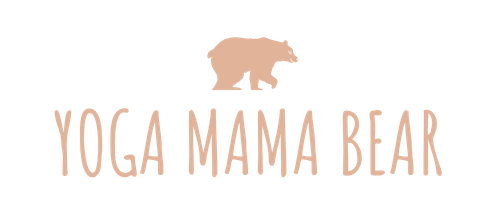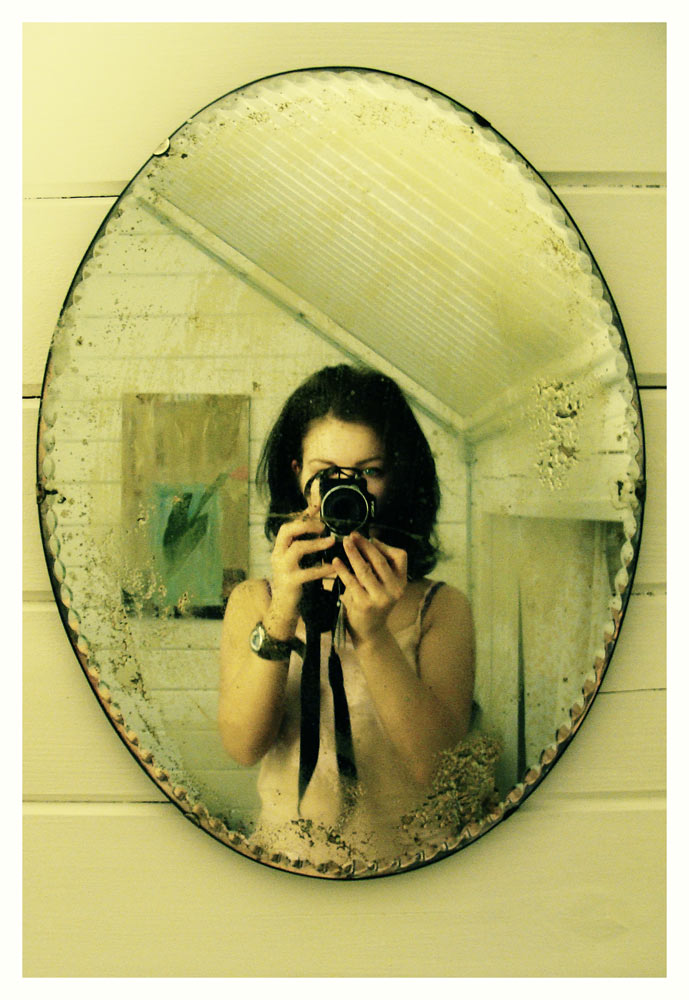What happened when I stopped looking in the mirror
CC image via Natasha Mileshina on Flickr
How many times today have you looked in the mirror? Start counting. It might shock you.
Other animals don't do this. In fact, this cat didn't even recognize himself when he saw his reflection. Seriously, I think humans are the weird ones.
What motivates you to look? Habit? Vanity? Poor self esteem? High self esteem? What are you hoping to gain from staring at your reflection?
Mirror, mirror on the wall … am I worth anything at all?
My relationship with the mirror has evolved as I’ve embraced a mindful lifestyle. I used to wake up and immediately go to the bathroom, lift up my shirt, and stare at my belly in disgust. Every. Morning.
And each time I visited the bathroom throughout the day, I’d do the same thing. My eyes laid on my belly first; face last. But when they got to my face, the criticism didn’t end. I’d pick at my blemishes and poke my round cheeks. Not once did I leave the mirror feeling better than before our encounter. It wasn’t a healthy relationship.
When I began my recovery journey and my therapist started teaching me about mindfulness, he had me throw out my scale (well, my boyfriend hid it from me) and stop looking in the mirror. Like these people, who inspired me to write about this experience, did.
Habits are hard to break. It took a while to get used to. Especially since mirrors are everywhere. EVERYWHERE. You may not realize it until you start trying to avoid them.
NOTE: I don’t think it’s healthy to always avoid a mirror. The goal is to love yourself as you are. But I was very sick and in order to keep food down, I needed to stop judging my body after eating.
Here’s what happened when I stopped looking in the mirror.
My relationship with food started improving. Instead of eating a meal and immediately seeing fat accumulate on my body, I instead focused on how the food made me feel.
I started doing more. I was wasting so much time — hours of each day — focusing on self-hate instead of doing things that brought me joy. Without mirrors, I freed up so much time. I started doing more. I worked more, went for walks, practiced yoga, cooked meals … things I didn’t give much time to before. I was happier.
My body started changing. Even without a scale, I noticed things stopped fitting. I was gaining weight. So I immediately got rid of things as soon as I outgrew them.
My fellow ED survivors know that this can be one of the most challenging parts of recovery. When we starve our bodies, we screw up our metabolism. And until we restore it, the weight gain happens quickly and is not balanced. It’s not uncommon for a person recovering from an eating disorder to quickly transition from being underweight to being slightly overweight, especially in the belly. This makes recovery extremely difficult, because to a person already struggling with body dysmorphia, when their body actually does start to get bigger, well, it’s disastrous. This is why it was so imperative that I stopped looking in the mirror. I had to in order to stay on track in my recovery process. (More on adjusting to weight gain here.)
Eventually, I started looking in the mirror again.
After 2-3 months sans mirror, I slowly started to face the mirror. I eased back into it, only allowing myself to look at my reflection once/day. And even now, I’m mindful at how much time I spend gazing at that shiny surface.
Here are the current terms of engagement with my mirror. I don’t want to call them “rules,” because that sounds negative and “rules” are what often dictate eating disorders. So these are more like guidelines that I strive to follow.
- Face first. I’ve met others struggling with ED who share this struggle — always looking at their belly first. Poor bellies. (I defend them here.) Now, I choose to look at my face first. It seems like a small thing but it’s made a huge difference. Sometimes, when I’m having a rough day (as an ED survivor we are always “in recovery,”) I catch myself lifting my shirt and gazing at my belly first. But the difference is that I catch myself in the act, and make a choice to end the distructive behavior. I remind myself why my belly is awesome and move on.
- If it feels bad, stop. I now look at my reflection more than once/day, but I try not to stare long enough to start criticizing my reflection. Like I said, I have bad days. And the moment the negative self talk starts, I walk away from the mirror. Because the experience isn’t bringing me peace. If the situation allows, I turn toward something that I know brings me back to peace. A quick meditation, yoga, a walk/fresh air, a bubble bath, cuddling with my dog, etc.
- The mirror does not show your worth. Our outward appearance does not reflect our inner significance. Like the Temptations say, beauty’s only skin deep. And we are responsible for the value we attach to it. I focused so much on the outer layer because I was avoiding the real issue inside. Once I turned my gaze from the mirror to my mind, the real healing began. And I can tell you that I’m much, much happier now, 50 pounds later.
- EXTREME CLOSE UP: No thanks. No deep meaning behind this one. I just really don’t see the point in those super close-up mirrors. (I think they're called magnifying mirrors?) Nobody can see my skin that close anyway. So why do I need to see it? No. Thanks.
You may not have an issue with the mirror. But if you do, or if you aren’t sure, I have a challenge for you. Notice how often you look in the mirror this week. Each time you do, notice the thoughts that arise. Are they positive? Negative? Do you find yourself avoiding mirrors or looking for them everywhere? Once we become mindful of our thoughts/actions, we can begin to transform them into something positive.

